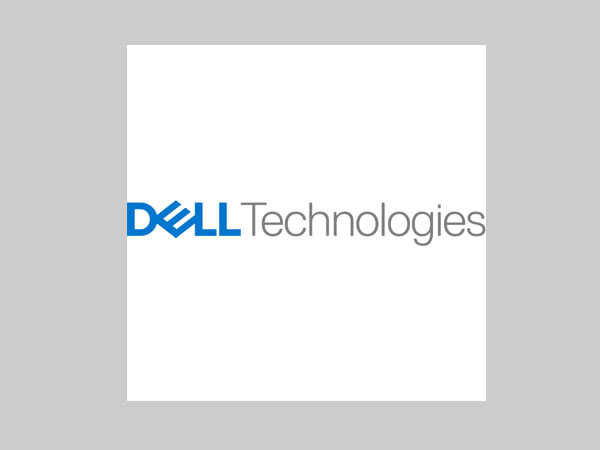
Ten Ways Dell Technologies’ Innovation Engine is Modernizing IT
Over the last decade, organizations of all sizes have embraced a connected and digital society. An even more dramatic shift is underway as how we work and learn has become distributed, and the home is now the office and the classroom. Dell Technologies delivers innovation to make a more connected, data-intensive and distributed future a reality.
“A company’s digital transformation strategy has never been more critical than it is today. We see technology reshaping global businesses, society and our communities,” said Jeff Clarke, chief operating officer and vice chairman, Dell Technologies. “We design our products and solutions to give businesses highly-automated, intelligent, secure and resilient IT that will help them prosper.”
The innovation engine powering digital transformation
Dell Technologies is helping customers become more resilient and prepare for the future. The company has invested more than (U.S.) $18 billion in research and development during the past five years and, in 2019, was the 16th highest recipient of U.S. patents. While shifting 90% of its global team to work remotely, Dell introduced many innovations this year and, in Q2, realized 30% year-over-year growth in as-a-Service and flexible consumption recurring revenue. Here are the ten most important things to know:
- Dell introduced Dell EMC PowerStore, a storage system that uniquely blends automation, next-generation storage media and a novel software architecture. PowerStore is gaining momentum with hundreds of customers, 20% of which are new to Dell Technologies storage.
- Dell announced Dell EMC PowerScale, a family of storage systems that set a new standard for how companies capture and manage unstructured data, and Dell EMC PowerFlex, software-defined storage solutions that deliver enterprise-class performance and resiliency for customers’ most critical workloads.
- Dell Technologies Cloud hybrid cloud advancements helped businesses manage their public, private and edge cloud environments with speed, consistency, scale, security and savings.
- Dell further expanded its cloud offerings with Dell Technologies Cloud PowerScale for Google Cloud, which combines Dell’s PowerScale network-attached storage with Google Cloud’s analytics and compute services to handle demanding workloads.
- Dell supported modern application development and provided an easy path to Kubernetes adoption with VMware Tanzu on Dell EMC VxRail, the only hyperconverged infrastructure that offers a fully integrated Tanzu portfolio.Dell also allowed customers to run Kubernetes at scale with Dell Technologies Cloud Platform and provided end-to-end data management and protection of Kubernetes workloads with PowerProtect Data Manager.
- Dell launched Enterprise SONiC Distribution by Dell Technologies, fully supported open source networking solutions developed for cloud-level, large-scale data center environments.
- Dell expanded relationships with a global network of technology and service providers to help customers realize greater value from the edge. Dell also launched the Dell EMC VxRail system designed to sustain extreme temperatures and shock, and the compact, ruggedized Dell EMC PowerEdge XE2420 server that delivers performance and security for analytics applications at the edge.
- Dell EMC Ready Solutions simplified and scaled AI workloads with self-service access to GPU resources, offering customers “AI anywhere.”
- Dell SafeBIOS Off-Host Verification, delivered with VMware Carbon Black Cloud Audit and Remediation, provided IT and security teams access and visibility to the BIOS health of their Dell PCs wherever employees are working.
- Dell expanded its PC portfolio with the most intelligent, secure2 and sustainable commercial lineup in the industry, as well as the industry’s first 5G-capable Intel-powered business PC, giving mobile professionals access to ultra-fast 5G speeds and reliable connectivity.
Shaping the digital future
Dell Technologies’ customers are using the company’s technology and services to improve business and society.
For example, The University of Pisa is a pioneer in high performance computing and Dell EMC PowerStore and PowerScale storage user. During the height of the COVID-19 crisis in Italy, Dell Technologies boosted the University’s all-flash capabilities, allowing it to support nearby Santa Chiara Hospital’s COVID-19 research while simultaneously supporting an AI-based chemistry research project and a multi-cloud shared service for administrative agencies, hospitals and cities in Tuscany.
Medacist, an innovator in drug diversion analytics, recently launched its SaaS-based offering called Genesis, an AI-powered platform that ingests and analyzes data from healthcare information systems to identify abnormalities to detect drug diversion. Using Dell EMC PowerEdge servers, PowerScale storage, CloudIQ for storage monitoring, and PowerProtect DD, Medacist was able to reduce data computation time from 24 hours to five minutes.
Informing future innovations
While the first six months of 2020 have led CIOs to reassess their IT spend, experts expect companies to invest approximately (U.S.) $3.4 trillion on IT this year. According to the 2020 Dell Technologies Digital Transformation Index, companies have sped their rate of technology adoption during the current business climate. In just a few months, 80% of businesses have fast-tracked at least some digital transformation programs.
“As the world has navigated a difficult and uncertain year, it has become crystal clear that technology has never been more important or impactful,” said Clarke. “During 2020, we’ve seen organizations increase their adoption of technologies that will shape the next decade.”
